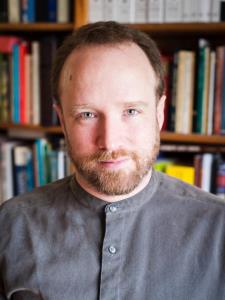Seth M. answered • 10/23/21
Expert Logic Tutor: Symbolic, Formal, Propositional, Predicate, Etc.
Good questions. Regarding the implied "then," yes, it is an "if/then" statement even if the "then" is not explicitly included. More precisely, this is called a hypothetical or conditional statement. The second part (the consequent) is true if the first part (the antecedent) is true. This leads to your second question. Hypothetical/conditional statements ARE compound statements. That is, they actually consist of two statements that are joined by a conditional.
The two statements/ideas are:
1) "A speller is unable to spell the word within 30 seconds"
2) "the speller immediately drops out of the competition"
These could be joined in many ways: and, or, either, etc. It is called a hypothetical statement because it does not assert that either claim actually is true -- only that if the first statement is true, then the other statement will also be true.
(The is sometimes also called material implication, but we will go into the tall grass if we follow that idea too far.)





